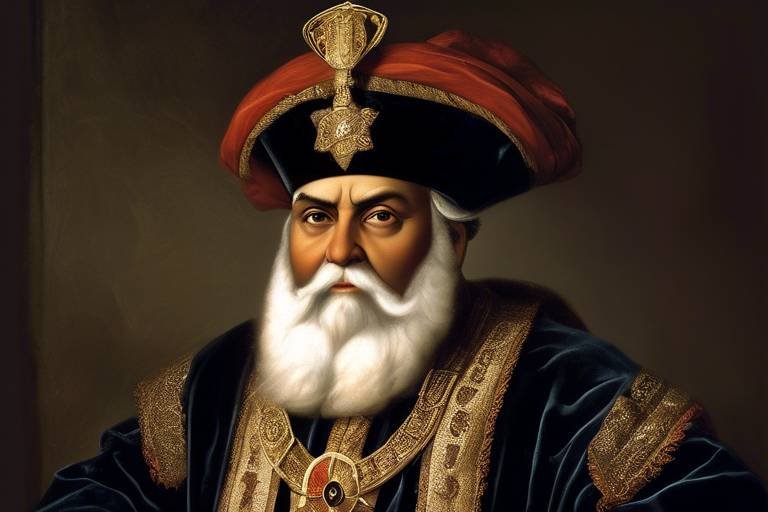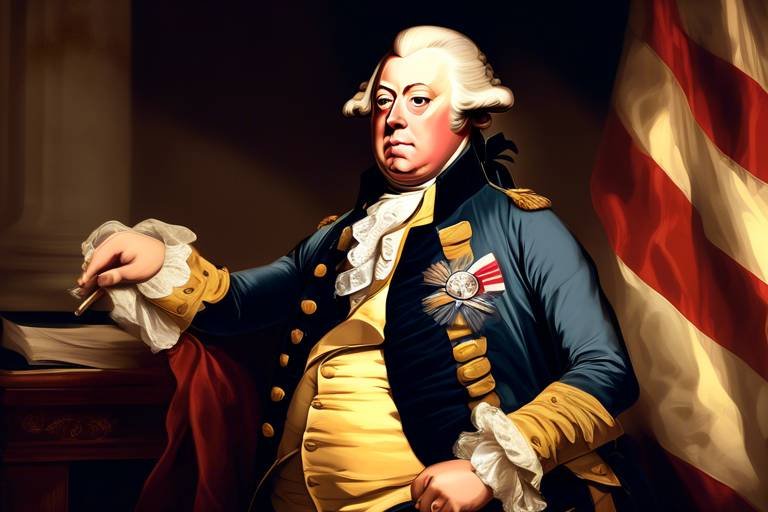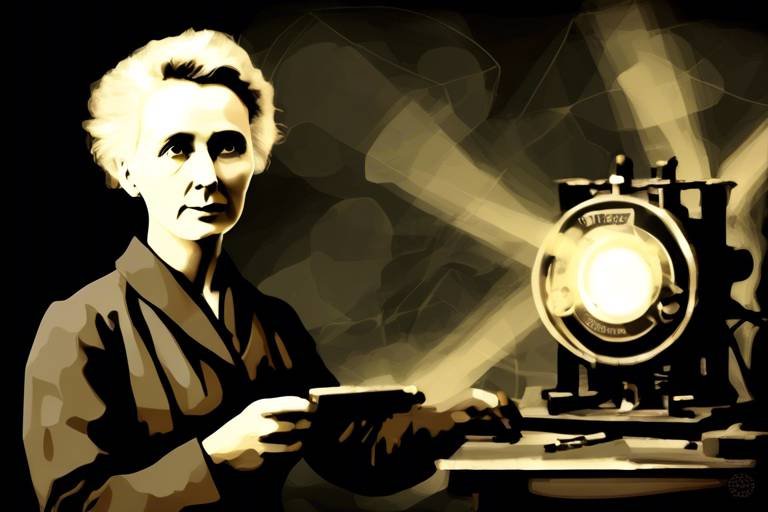Pauli: The Theorist of Spin
Wolfgang Pauli, a brilliant mind in the realm of theoretical physics, is renowned for his groundbreaking contributions to the concept of spin and the development of the Pauli exclusion principle. His work revolutionized the field of quantum mechanics, leaving an indelible mark on the scientific community.

Early Life and Education
Exploring the life and contributions of Wolfgang Pauli, a pioneering physicist known for his work on the concept of spin in quantum mechanics and the Pauli exclusion principle.
Wolfgang Pauli was born in Vienna, Austria, in 1900. Growing up in a family of academics, he was exposed to the world of science from a young age. Pauli's passion for physics was ignited during his formative years, leading him to pursue a career in theoretical physics. He studied at the University of Vienna and later completed his doctoral studies at the University of Göttingen under the guidance of renowned physicists like Max Born and Arnold Sommerfeld.
During his academic journey, Pauli delved deep into the realm of quantum mechanics, laying the foundation for his groundbreaking research in theoretical physics. His early education not only shaped his scientific outlook but also instilled in him a relentless pursuit of knowledge and innovation.
The hallmark of Pauli's scientific legacy lies in his theory of electron spin, a concept that revolutionized the field of quantum mechanics. By introducing the idea of intrinsic angular momentum associated with elementary particles, Pauli provided a new perspective on the behavior of electrons within atoms.
This theory not only explained various phenomena observed in atomic spectra but also paved the way for the development of quantum field theory and the Standard Model of particle physics. Pauli's work on spin laid the groundwork for modern physics, influencing generations of scientists and shaping our understanding of the microscopic world.
Central to Pauli's contributions is the famous Pauli exclusion principle, which states that no two identical fermions can occupy the same quantum state simultaneously. This fundamental principle governs the behavior of particles with half-integer spin, such as electrons, and plays a crucial role in determining the stability of matter.
By elucidating the principles underlying electron configurations in atoms, Pauli's exclusion principle provided a key insight into atomic structure and chemical bonding. Its implications extend far beyond the realm of physics, influencing diverse fields ranging from chemistry to astrophysics.
Throughout his career, Pauli collaborated with leading physicists of his time, including Niels Bohr and Werner Heisenberg, fostering a vibrant exchange of ideas and discoveries. His intellectual partnerships not only enriched his own research but also contributed to the collective advancement of theoretical physics.
One of Pauli's significant contributions was to the development of quantum field theory, a framework that unifies quantum mechanics and special relativity. His insights into particle interactions and field dynamics played a pivotal role in shaping our understanding of fundamental forces and particle behavior.
Pauli's groundbreaking work in theoretical physics earned him numerous accolades, most notably the Nobel Prize in Physics in 1945 for his discovery of the exclusion principle. His legacy continues to inspire scientists worldwide, with his name immortalized in the annals of scientific history.
Behind Pauli's scientific brilliance lay a complex personal journey marked by struggles with depression and existential questions. His relentless quest for a unified theory in physics reflected not only his intellectual curiosity but also his inner turmoil and introspection.
In his later years, Pauli faced deteriorating health and ongoing battles with mental illness. Despite these challenges, his passion for physics never wavered, and he continued to contribute to the field until his passing in 1958. Wolfgang Pauli left behind a rich scientific heritage, a testament to his enduring impact on theoretical physics.

Quantum Spin Theory
Wolfgang Pauli's work on quantum spin theory revolutionized the field of theoretical physics, introducing a concept that fundamentally altered our understanding of the behavior of particles at the atomic level. In his groundbreaking research, Pauli proposed the existence of a property known as "spin" for electrons, a quantum mechanical property that is not related to the physical spinning motion of a particle. This intrinsic angular momentum of particles plays a crucial role in determining their behavior in magnetic fields and under various quantum interactions.
One of the key implications of Pauli's quantum spin theory is the explanation of the fine structure of atomic spectra, providing a deeper insight into the energy levels and transitions of electrons within atoms. By incorporating the concept of spin, Pauli's theory enhanced the predictive power of quantum mechanics, allowing for more accurate descriptions of atomic properties and interactions. This foundational work laid the groundwork for the development of quantum field theory and quantum electrodynamics, shaping the modern landscape of theoretical physics.
Moreover, Pauli's contributions to quantum spin theory extended beyond the realm of atomic physics, influencing diverse areas such as condensed matter physics, particle physics, and quantum information theory. The quantization of spin values and the incorporation of spinors into the mathematical formalism of quantum mechanics have become indispensable tools for physicists in exploring the behavior of fundamental particles and complex systems.

Pauli Exclusion Principle
The is a fundamental concept in quantum mechanics formulated by Wolfgang Pauli in 1925. This principle states that no two electrons in an atom can have the same set of quantum numbers, effectively prohibiting the occupation of the same quantum state by multiple identical fermions. This principle plays a crucial role in determining the electron configuration of atoms, explaining the stability of matter, and influencing chemical bonding.
Imagine electrons as guests at a crowded party where each electron has its designated seat, and no two electrons can sit in the same chair. This rule ensures order and stability in the atomic world, preventing the collapse of matter into a chaotic mess. Without the Pauli Exclusion Principle, atoms would not be able to form stable structures, and the universe as we know it would be vastly different.

Collaborations and Influence
Wolfgang Pauli's impact on theoretical physics extended far beyond his individual contributions. His collaborations with esteemed physicists such as Niels Bohr solidified his position as a key figure in the scientific community. Through these partnerships, Pauli engaged in vibrant intellectual exchanges, pushing the boundaries of quantum mechanics and laying the foundation for modern physics.
Working closely with Bohr, Pauli played a pivotal role in the development of quantum field theory, a framework essential for understanding the behavior of subatomic particles. Their collaborative efforts led to groundbreaking insights into the nature of matter and energy, shaping the course of particle physics. The synergy between Pauli and Bohr exemplified the power of collective intelligence in advancing scientific knowledge.
Pauli's influence extended beyond his immediate circle of collaborators. His theoretical work on electron spin and the Pauli exclusion principle set a new standard in quantum mechanics, inspiring generations of physicists to delve deeper into the mysteries of the subatomic world. The elegance and precision of Pauli's ideas reverberated throughout the scientific community, leaving an indelible mark on the field of theoretical physics.

Quantum Field Theory
Quantum Field Theory is a cornerstone of modern theoretical physics, revolutionizing our understanding of the fundamental forces and particles that govern the universe. Developed by Wolfgang Pauli and other pioneering physicists, Quantum Field Theory provides a framework for describing the interactions of elementary particles through the exchange of virtual particles.
At its core, Quantum Field Theory combines the principles of quantum mechanics with special relativity, offering a unified description of particles as excitations of underlying fields. These fields permeate space and time, giving rise to the diverse phenomena observed in the microscopic world.
One of the key insights of Quantum Field Theory is the concept of quantized fields, where particles are viewed as quantized excitations of their respective fields. This approach allows for the calculation of particle interactions and the prediction of measurable outcomes with remarkable precision.
Through his contributions to Quantum Field Theory, Pauli played a crucial role in advancing our understanding of particle physics and the fundamental forces of nature. His work laid the foundation for the Standard Model of particle physics, which successfully describes the electromagnetic, weak, and strong nuclear forces.
By treating particles as manifestations of underlying fields, Quantum Field Theory has provided a powerful framework for exploring the nature of matter and energy at the most fundamental level. It continues to inspire new generations of physicists to unravel the mysteries of the universe and push the boundaries of scientific knowledge.

Awards and Legacy
Exploring the life and contributions of Wolfgang Pauli, a pioneering physicist known for his work on the concept of spin in quantum mechanics and the Pauli exclusion principle.
Pauli's upbringing in Vienna and his academic journey, leading to his groundbreaking research in theoretical physics.
The development of Pauli's theory of electron spin, its implications for quantum mechanics, and its role in shaping modern physics.
Explanation of Pauli's fundamental principle governing the behavior of fermions and its significance in understanding atomic structure and chemical properties.
Pauli's partnerships with prominent physicists like Niels Bohr and his lasting impact on the field of theoretical physics.
Pauli's contributions to the development of quantum field theory and his role in advancing the understanding of particle physics.
Wolfgang Pauli was honored with numerous awards throughout his career, most notably the Nobel Prize in Physics in 1945 for his discovery of the Pauli Exclusion Principle. This groundbreaking principle revolutionized our understanding of atomic structure and laid the foundation for modern quantum mechanics.
In addition to the Nobel Prize, Pauli received recognition for his exceptional contributions to theoretical physics, earning him a place among the most influential scientists of the 20th century. His legacy continues to inspire future generations of physicists and researchers, shaping the direction of scientific exploration.
Insight into Pauli's battles with depression and his quest for a unified theory in physics, reflecting on the human side of a brilliant mind.
An overview of Pauli's later life, his health challenges, and the circumstances surrounding his passing, leaving behind a rich scientific heritage.
If you have any questions about Wolfgang Pauli's life, contributions, or legacy, check out the following FAQs:
Q: What was Wolfgang Pauli's most significant contribution to physics?
A: Pauli's discovery of the Pauli Exclusion Principle, which governs the behavior of fermions and has profound implications for atomic structure and quantum mechanics, stands as his most influential contribution.
Q: How did Pauli's collaborations with other physicists impact his work?
A: Pauli's collaborations with renowned physicists like Niels Bohr enriched his research and led to significant advancements in theoretical physics, contributing to his lasting legacy in the scientific community.

Mental Health and Personal Struggles
Exploring the mental health and personal struggles of Wolfgang Pauli provides a glimpse into the complexities of his brilliant mind. Despite his remarkable contributions to physics, Pauli battled depression throughout his life, facing inner turmoil that often overshadowed his professional success. His relentless pursuit of a unified theory in physics, a quest that remained unfulfilled, reflects the intense pressure he placed on himself to achieve perfection in his work.
Pauli's struggles with mental health not only impacted his personal life but also influenced his scientific endeavors. The tension between his desire for intellectual breakthroughs and the emotional challenges he faced underscores the fragility of even the most brilliant minds. This internal conflict shaped Pauli's approach to research, driving him to seek deeper truths in the universe while grappling with his own inner demons.
Despite his inner turmoil, Pauli's intellectual prowess remained unparalleled, leading to groundbreaking discoveries in theoretical physics. His ability to harness his inner struggles and channel them into creative energy exemplifies the complex relationship between genius and vulnerability. Pauli's legacy serves as a reminder that even the greatest minds are not immune to the human experience of pain and suffering.

Final Years and Death
Wolfgang Pauli, a pioneering physicist, made significant contributions to the field of theoretical physics, particularly in the areas of quantum mechanics and the concept of spin. His work on the Pauli exclusion principle revolutionized our understanding of atomic structure and quantum behavior.
Born in Vienna, Pauli showed an early interest in science and mathematics. His academic journey led him to study theoretical physics, where he quickly distinguished himself as a brilliant mind. Pauli's passion for unraveling the mysteries of the universe drove him to pursue groundbreaking research in the field.
Pauli's theory of electron spin was a breakthrough in quantum mechanics, providing a new perspective on the behavior of subatomic particles. The concept of spin not only influenced the development of modern physics but also laid the foundation for further advancements in the field.
The Pauli exclusion principle, formulated by Wolfgang Pauli, governs the behavior of fermions and plays a crucial role in understanding the structure of atoms and the properties of chemical elements. This fundamental principle has had a profound impact on the field of quantum mechanics.
Pauli collaborated with renowned physicists like Niels Bohr, exchanging ideas and shaping the course of theoretical physics. His contributions to quantum field theory advanced our understanding of particle interactions and paved the way for significant discoveries in the field.
Pauli's remarkable achievements were recognized with the Nobel Prize in Physics, solidifying his legacy as one of the most influential physicists of his time. His work continues to inspire future generations of scientists and remains a cornerstone of modern physics.
Despite his scientific brilliance, Pauli faced personal challenges, including battles with depression and a relentless quest for a unified theory in physics. His struggles humanize the image of a brilliant mind grappling with the complexities of the universe.
In his later years, Pauli's health declined, and he faced increasing challenges in his research. Despite these difficulties, his passion for physics never wavered. Tragically, Pauli passed away, leaving behind a rich scientific heritage that continues to shape the world of physics.
Frequently Asked Questions
- What were Wolfgang Pauli's major contributions to physics?
Wolfgang Pauli made significant contributions to theoretical physics, particularly in the areas of quantum mechanics and particle physics. He is best known for his discovery of the Pauli exclusion principle, which governs the behavior of fermions and plays a crucial role in understanding atomic structure and chemical properties.
- Who were some of Wolfgang Pauli's notable collaborators?
Pauli collaborated with several prominent physicists during his career, including Niels Bohr and Werner Heisenberg. These collaborations led to groundbreaking advancements in the field of theoretical physics and contributed to the development of modern quantum theory.
- What is the significance of Pauli's work in quantum field theory?
Pauli's work in quantum field theory was instrumental in advancing our understanding of particle physics. His contributions laid the foundation for the development of quantum electrodynamics and paved the way for further research in the field of elementary particles.
- How did Wolfgang Pauli's personal struggles impact his scientific career?
Pauli faced significant personal challenges, including battles with depression and a lifelong quest for a unified theory in physics. Despite these struggles, he continued to make groundbreaking discoveries and left behind a lasting legacy in the scientific community.
- What awards and honors did Wolfgang Pauli receive during his lifetime?
Pauli was awarded the Nobel Prize in Physics in 1945 for his discovery of the exclusion principle. In addition to this prestigious honor, he received numerous other awards and accolades for his pioneering work in theoretical physics.



















